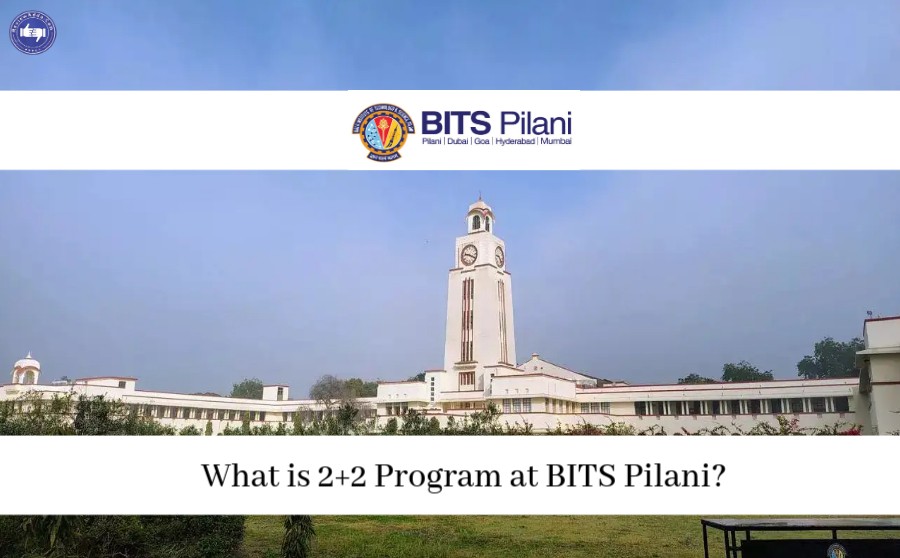SAT vs ACT which is easier
You will almost always be required to take the ACT or SAT exam when applying to colleges and universities in the United States. These exams are just one part of the college admissions process for both international and native students. When you submit your ACT or SAT exam scores with your college application, college admissions committees examine those scores to assess your abilities and college preparation.
Students frequently confront the challenge of deciding which of these two tests is simpler or better suited to their skills. Well! The SAT had around 1.7 million test takers in 2022, whereas the ACT had just 1.35 million test takers. There is no hard and fast rule regarding attending one exam over another. Both exams have comparable material and patterns, however there are significant differences that will be discussed in this post.
In this article, we'll look at the fundamental distinctions between the SAT and the ACT, as well as the criteria that can help you pick which exam is best for you.
Understanding the SAT and ACT:
What is the SAT exam?
The Scholastic Aptitude Test, or SAT, is a standardized test that assesses pupils' competence in reading, writing, and mathematics. The exam lasts 2 hours and 14 minutes and is divided into two sections: reading and writing and maths. Each segment is divided into two modules, each with a predetermined number of questions.
In March 2023, the exam switched digital and no longer used paper and pencil. There is no official word on exact facts concerning SAT eligibility at this time, although high school graduates are encouraged to take the exam.
The SAT exam is widely recognised not just in US colleges, but also at UK, Canadian, and Australian universities. The SAT topic exams have been phased out as of June 2021; for further information, see SAT topic exams are no longer needed at most American colleges.
What is an ACT exam?
The American College Testing, or ACT exam, is another standardised exam used by prospective undergraduates seeking admission to study abroad. The ACT exam lasts 2 hours and 55 minutes and has around 215 questions divided into parts. The ACT exam is broken into four sections:
- English
- Mathematics
- Reading
- Science
- Optional Writing section
The ACT exam, like the SAT exam, is widely recognised in top colleges throughout the world, including the United States, Canada, the United Kingdom, Italy, and others.
Importance of Standardized Tests in College Admissions:
Standardized tests, such as the SAT and ACT, play a crucial role in college admissions for several reasons:
Standardized Assessment: These tests provide a standardized way to evaluate students from diverse backgrounds and educational systems. It offers a common benchmark to compare students' academic abilities fairly.
Objective Measure: Colleges receive applications from students with varying GPA scales and grading systems. Standardized tests offer an objective measure of a student's academic capabilities and potential, enabling admissions committees to make fair assessments.
Predictive Value: Research has shown that SAT and ACT scores correlate with college success. They predict how well a student might perform in college, helping institutions admit individuals who are more likely to thrive academically.
Merit Scholarships: Many colleges offer merit-based scholarships based on a student's test scores. Achieving high scores can lead to financial rewards that help make higher education more affordable.
Fair and Inclusive: Standardized tests can promote diversity and inclusion. They allow students from various backgrounds and regions to demonstrate their academic abilities, potentially leveling the playing field in college admissions.
Admissions Decisions: For highly competitive colleges, where the number of applicants far exceeds available spots, standardized test scores can become a differentiator. They provide admissions committees with an additional data point to make tough decisions.
Comparable Data: These tests offer a way for colleges to compare students from different high schools, states, and countries. This comparability is crucial when colleges aim to build diverse and dynamic student bodies.
It's essential to note that while standardized tests are significant, they are just one part of the college application. Admissions committees often consider various factors, including high school GPA, extracurricular activities, recommendation letters, essays, and interviews. The weight placed on standardized test scores can also vary from one institution to another.
Similarities between the SAT and ACT Tests
While the tests do not contain the same assessments, the SAT and ACT have several similarities, including:
- They take over three hours to complete. (The ACT is 15 minutes shorter.)
- They provide institutions with a thorough understanding of each student's ability.
- They cover fundamental disciplines like reading, writing, and mathematics.
- These exams are often taken by third and fourth-year high school students.
- Registration for both begins around one month before the test date.
- Most universities will take both.
- Students are not penalized for incorrect answers.
- Include reading and writing questions based on passages.
Differences between the SAT and ACT Tests
Let us examine the similarities and differences between the ACT test pattern and the SAT exam pattern using the recommended guideline, which is detailed below:
|
Areas of Difference |
SAT |
ACT |
|
Sections |
|
|
|
Test Duration |
2 hrs 14 minutes |
2 hrs 55 min (without essay) 3 hrs 35 min (with essay) |
|
Score |
Scored on a scale of 400-1600 |
Scored on a scale of 1-36 |
|
Calculator use |
The calculator be used for all math questions |
All math problems should be answered using the calculator. |
|
Mathematics Syllabus |
Algebra I and II Geometry and Trigonometry Arithmetic/Probability/Data Analysis |
Algebra I and II Geometry and Trigonometry Arithmetic/Probability |
|
Reading Syllabus |
5 reading Passages |
4 reading passages |
|
Science Syllabus |
There is none. But tested through the reading passages. |
The ACT Science portion does not assess knowledge of any specific science subject. It will put your scientific reasoning and critical thinking skills to the test. |
|
English or Writing/Language Syllabus |
Grammar/Punctuation Vocabulary Editing skills |
Rhetorical skills Grammar/Punctuation Sentence Structure |
|
Essays |
The SAT's optional essay part has been suspended. |
The ACT's optional essay portion will assess analytical and evaluative abilities. |
|
Frequency of Test |
In the United States, it is held 7 times a year. Held 5 times a year internationally |
Held 6 times a year |
|
Test Dates |
March, May, June, October, and December |
February, April, June, July, September, and October |
|
Examination Fee |
The overseas SAT testing price is $103. The fee for Indian candidates is around $8,570 (approx) depending on current currency rates. Check SAT's official website for fee-related updates |
$181.50 (without essay) is ACT international testing fee Those who choose the optional essay component must pay an extra $25. The total amount for Indian candidates is between $15,101 and $17,182, depending on current currency rates. Check ACT's official website for fee-related updates |
SAT vs. ACT: Exam fee
Aside from the changes in style and content, there are also significant variances in the prices connected with the SAT and ACT examinations. To evaluate which test best fits within your budget, consider the basic rates as well as any additional expenses for special services or conditions. The following is the exam cost for both the SAT and the ACT, which are needed by US universities:
|
Exam |
SAT |
ACT |
|
Basic Fee (without essay) |
$46 - $58 |
$46 |
|
Basic Fee (with essay) |
$60 - $93 |
$62.50 |
|
Additional International Testing Fee |
$57.50 |
$57.50 |
While both the SAT and ACT share common aspects, they also exhibit notable differences. The SAT places a stronger emphasis on critical thinking and problem-solving skills, whereas the ACT prioritizes content knowledge. The SAT also includes a unique format and scoring methodology, as well as a component dedicated to reading and evaluating texts. Finally, choosing between the two tests should be based on personal strengths and preferences. It is advised that you take both tests and practise tests to discover which one is best for you.
Merit Scholarships for SAT and the ACT
One of the key advantages of opting to take the SAT or ACT is the potential to earn merit-based scholarships, which can greatly alleviate the financial burden of college expenses. While student financial aid can certainly help with educational costs, the prospect of having a portion of your expenses covered through scholarships is a highly beneficial endeavor.
Here are some of the scholarships you should look into, as well as how to apply for them:
National Merit Scholarship Corporation
The National Merit Scholarship is awarded to students who achieve the highest scores on the PSAT (Preliminary SAT) in their respective states. PSATs serve a dual purpose: not only do they prepare you for the SAT, but they also make you eligible for the prestigious scholarships offered by the National Merit Scholarship Corporation (NMSC).
The NMSC will offer up to $2,500 to individuals who apply and are selected for the scholarship, but you can win even more scholarship money from specific institutions if you identify them as your "first choice" while applying through National Merit. This is known as University Sponsorship. Visit their web site to learn more about how to enter the National Merit competition.
College Specific Awards
Many institutions also provide scholarships for students with good SAT or ACT scores. Some of these scholarships range from full-ride to partial tuition reimbursement. PrepScholar is an incomplete list of some of the most prevalent college-specific scholarships based on ACT or SAT scores.
If your school isn’t listed, you can still research their website to find out if they offer merit-based scholarships. Some colleges will offer particular scholarships with a limited application period, so the sooner you can explore your alternatives, the better.
If your ACT or SAT score falls just short of the minimum requirement set by your preferred institution, consider retaking the exam to enhance your score. While a top score doesn't ensure a scholarship, it does open the door to the application process. Even a modest improvement in your score could be the distinction between a $2,000 scholarship and a full-ride opportunity!
Taking a college admission exam is not anything to be afraid of. You may take practice exams, talk with your professors, and estimate your SAT and ACT scores to discover which is most suited to your academic talents. Remember that incorrect answers will not lower your score on any test, so focus on utilising your time wisely and going for questions you are confident in rather than getting stuck on one that is too difficult.
If you already know the institutions you want to attend or apply to, it's worth looking into if those schools or the states where they're located offer any scholarships based on test results. Best wishes!
Which is more popular at foreign universities, the SAT or the ACT?
As a result, there is no preference expressed on foreign university websites for students seeking admittance to programmes that need ACT or SAT exam results. Some institutions may have eliminated SAT or ACT score submissions as part of their admission procedures. A few institutions in the United States have made standardized exam results optional or have eliminated them entirely. Also look at: Take the SAT in India to study in the United States and Canada. As a result, it is entirely up to the candidates whether they choose to submit SAT or ACT results.
The applicant's interests play a significant role in the decision-making process, prioritizing their personal inclinations over the university's preferences. For individuals who excel in math and science, consistently demonstrating a strong understanding of these subjects throughout high school, the ACT is a suitable choice. On the other hand, those with a modest affinity for language and literature, as well as a basic proficiency in mathematics, may find the SAT exam to be a more appropriate option.
Unless otherwise specified on the university's website, candidates should only submit the exam score with which they are most comfortable. Thus, there is no priority at international colleges; rather, the candidates have the preference.
Which Test is Easier?
The question of whether the SAT or ACT is easier is subjective and depends on your individual strengths and preferences. Determining whether the SAT or ACT is easier presents a subjective challenge, as there is no universally agreed-upon answer. Ultimately, prospective test-takers should base their choice on which exam aligns more closely with their strengths and preferences rather than solely on perceived difficulty.
This suggests that individuals who excel in Mathematics and Science may find the ACT exam a suitable choice, while those with a strong background in Mathematics, Reading, and English may opt for the SAT exam. The decision ultimately rests with the candidates, allowing them to choose the test that aligns better with their strengths and personal preferences.
Before making a decision, candidates should look into:
- Content Preference: The SAT places a stronger emphasis on vocabulary and critical reading, while the ACT is more content-based. If you excel in math and science, you may find the ACT easier. If you're strong in critical reading and writing, the SAT might be your better choice.
- Timing: The SAT provides more time per question, making it a better option if you struggle with time pressure. The ACT is known for its faster pace, so if you're good at managing time, it might suit you.
- Science Section: If you have a strong science background, the ACT's Science section could be an advantage. The SAT does not include a science portion.
- Optional Essay: Consider whether the colleges you're interested in require the essay portion. If not, you can save time and stress by opting for the non-essay version of either test.
- Practice and Preparation: Ultimately, your performance on either test depends on the effort you put into preparation. Taking practice tests and getting familiar with the format and types of questions can significantly impact your score.
Overall, all these factors depend on the applicant being prepared enough to appear for the SAT or ACT based on which is easier for them. The reasons are not limited to those listed below; there may be more based on the applicant and the scenario at hand.
How to Choose Between the SAT and ACT
You should have a good concept of how each exam differs in terms of length, question kinds, and format after reading this article. It all comes down to how well you answer questions and the scoring rubrics: The ACT does not penalise guessing and includes optional writing components, but the SAT does penalise guessing and includes writing sections.
Because the ACT science component tests critical reading of science passages rather than science knowledge, science knowledge is practically irrelevant for this exam.
The ACT includes trigonometry, but the SAT does not. Because the ACT and SAT take roughly the same amount of time to complete, there is no advantage to taking one over the other. When switching from the SAT to the ACT, preparation is minimal.
It is advised to take two weeks to cross-study each test before deciding which one is ideal for you. Some individuals recommend taking both tests and submitting the one with the highest score






